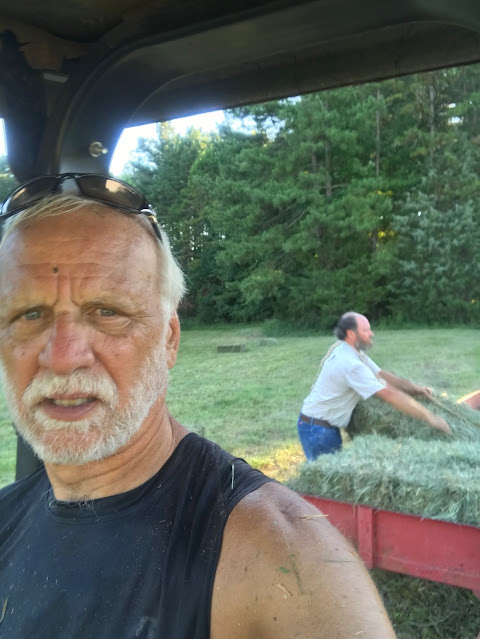If you're anything like me, you love Christian biographies. Iain Murray's life of Edwards is one of the very best. I'm fascinated by what life was like in early 18th century New England. Northampton, where Jonathan Edwards ministered, was a pretty typical example.
Let me give you some idea of what a man's life consisted of in that village. First, he was armed. In fact, every man was required to possess a musket -- and know how to use it. Rising at dawn each day, you had a quick breakfast of bread and corn meal. Then you went off to work "in harmony with the procession of the seasons as their fathers had done" (p. 81). In the springtime, you planted your corn and wheat, and calves and lambs were born. Then came haying and harvesting during the summer months. Finally, in the fall you picked and stored apples, slaughtered your animals for food, and ploughed your fields for next year's planting. Timber felling was done all year long, as was the milking of cows and the feeding of horses. At noon every day, the church house bell brought you back home for dinner -- more corn meal along with some meat and vegetables. Then you went back to work until nightfall, when you enjoyed a supper of cold meat, prayed and read the Bible, and went to bed.
This lifestyle is not much different from those in rural America who still engage in some level of farming. Farming, I like to tell people, is hard work but it's good work. It puts you to bed at night with a good tired if you know what I mean. Some Christians are so convinced of the healthiness of the agricultural lifestyle that they have become "Christian Agrarians," calling their less-spiritual brethren to come out of the cities and return to their roots in the soil. I don't know about that. We live wherever God plants us. If he leads you to live in the city, then do it. If he leads you to live in the country, then obey him. I guess you could call me an agrarian enthusiast. I live on a farm but I do not make a full-time living from it. But I find it very satisfying to be able to enjoy my own beef and, when Becky was alive, our own vegetables. In one of his books, Thomas Jefferson argued that the United States should be based on an agrarian ideology. Apparently the idea never caught on. Today less than 2 percent of Americans farm. I recall in the early 1980s there was a back-to-the-land movement, especially among homeschool families. Time Magazine even ran a cover story called "Ex-Urbanites." But this too was short-lived. Many families discovered that where there's a Garden of Eden, there's often a Fall right behind it. Again, agrarianism is not for everybody. I prefer to speak of "country-mindedness," and a lot of my suburban friends share this mindset with me.
When Edwards entered the pastorate, his salary was set at 100 pounds per year. The congregation also allocated to him 300 pounds for the purchase of a homestead, 10 acres of pastureland, and 40 more acres 5 miles up the river. It was here, on the land, that he, his wife, and his children spent many of the happiest years of their lives. I suppose Rosewood is like that for me. Here you develop a deep love for the land. You learn to care for other persons and things rather than just yourself. You understand life and death. And, if you are so inclined, you can develop a strong work ethic. The Amish are buying up farms all around, and I welcome them with open arms. No Amish kid ever grew up without learning responsibility.
Every day I am thankful for the farm. Working outdoors is very important to me. The most important thing in my eyes is that we respect and care for the land that our Heavenly Father has entrusted to our tending. I have many happy memories and have never had any dull moments.
